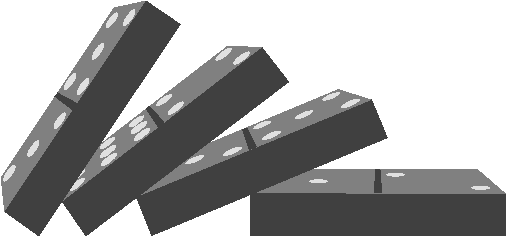Emile Zola
(1840-1902) French novelist and dramatist, leader of the naturalistic school. He much disliked the facile, optimistic plays of Scribe and his followers, and thought that a play should be a 'slice of life', thrown on the stage without embellishment of artifice. His own plays, particularly Thérèse Raquin (1873) which he dramatised from his novel of that name, carry out this theory, which he developed at greater length in his critical articles, later published in two volumes as Le Naturalisme au theatre and Nos auteurs dramatiques. The second volume castigates the major dramatistis of the time, of whom Zola had a very poor opinion, and is less interesting than the first, in which he deals mainly with his own ideas of reform. It is as a novelist that Zola is chiefly remembered, but he had an important influence on the development of the French, and through that of the European theatre of his day and afterwards.
From the chapter "The Coming of Realism" in World Drama by Professor Allardyce Nicholl.
Zola…has tremendous importance on account of the aesthetic philosophy which he tried to establish on the stage. Fundamentally, what he sought was the extreme of objectivity, applied --characteristically enough--only to the gloomiest spheres of life. In the realm of prose fiction, of course, rests his greatest fame, but of hardly less significance is his contribution to the theatre.
Thérèse Raquin inaugurated a style utterly different. The plot is not particularly remarkable, but it is the way in which this gloomy tale is presented that grants the play its peculiar significance. What Zola wanted was a type of drama which should, without twisting facts in order to prove a thesis, be absolutely true to existence. The 'drama of ideas' the 'piece à thesé' tactily assumes that the author devises a plot in such a way as to prove his argument: such an author may present a setting true to the actual in every respect, he may adopt a kind of dialogue faithful to the terms of contemporary speech, but his basic purpose implies that he must so order his material as to accord with his preconceived idea. Zola wanted complete objectivity, the depiction of the real with almost photographic exactitude. He sees his characters as case-studies; he wishes the drama to submit to follow the moods of science by studying men dispassionately. He attacks the old romantic theatre, but at the same time has no desire to revive the classic. "There should no longer be any school," he cries, "no more formulas, no standards of any sort: there is only life itself, an immense field where each may study and create as he likes." The recipe for the well-made play he rejects: "Naturalism is already stammering its first accents on the stage…. The drama will either die, or become modern and realistic…." In writing Thérèse Raquin he attempts so to present his characters against the background of their environments as to make them "not play, but rather live, before the audience."

